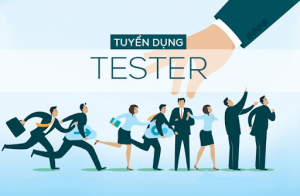A Minimum Viable Product (MVP) is a development technique where a new product is introduced to the market with just enough features to satisfy early adopters. This approach allows companies to test their ideas with minimal investment and gather valuable feedback for future iterations. Here are ten notable MVP examples that evolved into successful global brands.

1. Airbnb
Overview
Airbnb started as a simple platform to help the founders rent out air mattresses in their apartment during a conference in San Francisco.
MVP Features
- Basic website to facilitate bookings.
- User reviews to gather early feedback.
Success
Today, Airbnb is a leading global platform for short-term lodging, with millions of listings worldwide, revolutionizing the hospitality industry.
2. Dropbox
Overview
Dropbox began as a basic file storage and sharing solution, initially launched as a simple demo video that showcased its functionalities.
MVP Features
- Video demonstration to gauge interest.
- Basic file sync and sharing capabilities.
Success
Now a major player in cloud storage, Dropbox has grown to include a suite of collaboration tools, serving millions of users and businesses globally.
3. Zappos
Overview
Zappos started with the MVP of a website featuring photographs of shoes from local retailers, testing the online shoe sales model.
MVP Features
- Simple website with limited inventory.
- Direct partnerships with local shoe stores for fulfillment.
Success
Zappos evolved into a massive online retailer known for exceptional customer service and a broad selection of footwear and fashion items, ultimately being acquired by Amazon.
4. Twitter
Overview
Twitter initially started as a side project within Odeo, a podcasting company. The first version allowed users to send short status updates.
MVP Features
- A basic platform for microblogging with a 140-character limit.
- Direct messaging and social following features.
Success
Twitter has grown into a major social media platform, influencing communication and information sharing around the globe.
5. Spotify
Overview
Spotify began as an MVP focusing on streaming music with a simplified user interface and limited catalog compared to traditional music services.
MVP Features
- Limited music library available for streaming.
- Basic user accounts and playlists.
Success
Now a market leader in music streaming, Spotify offers millions of tracks, personalized playlists, and podcasts globally, transforming how users access music.
6. WhatsApp
Overview
WhatsApp started as a simple messaging app developed to allow users to send texts and notifications without incurring SMS charges.
MVP Features
- Basic text messaging functionality.
- Simple user interface for easy communication.
Success
WhatsApp has become one of the world’s most popular messaging applications, enabling billions of users to connect through text, voice, and video messages.
7. Instagram
Overview
Instagram originally launched as a straightforward photo-sharing app with filters, focusing on user-friendly design and social sharing.
MVP Features
- Basic photo sharing with filters.
- Social media platform for liking and commenting.
Success
Instagram has transformed into a multi-billion dollar social media platform, evolving to incorporate Stories, Reels, and extensive advertising options.
8. Yelp
Overview
Yelp started as a simple website that allowed users to find local businesses and share reviews, aiming to connect consumers with local services.
MVP Features
- Basic listings of local businesses with user-generated reviews.
- Simple search functionality.
Success
Now a leading platform for local business reviews and recommendations, Yelp has expanded its features, including reservations and service requests, worldwide.
9. Amazon
Overview
Amazon began as an online bookstore, allowing users to order books over the internet—a novel concept at the time.
MVP Features
- Basic e-commerce platform focusing on book sales.
- User reviews and ratings to foster credibility.
Success
Amazon has grown into one of the world’s largest e-commerce platforms, diverging into numerous categories such as electronics, groceries, and cloud services with Amazon Web Services (AWS).
10. Kickstarter
Overview
Kickstarter started as a platform for creators to present projects and raise funds through crowd-sourcing, testing their ideas without large upfront investments.
MVP Features
- A basic platform for showcasing projects and collecting pledges.
- Simple funding mechanics and project updates.
Success
Today, Kickstarter has helped launch thousands of successful projects across various industries, becoming a key player in the crowdfunding ecosystem.
Conclusion
These ten MVPs illustrate the power of starting small and iterating based on user feedback. By focusing on essential features and understanding market demands, these companies have successfully scaled into global giants. Whether in technology, retail, or service industries, the ability to pivot and adapt is crucial for innovative startups aiming for success.
🌐 Website: [Tinasoft]
📩 Fanpage: Tinasoft Vietnam













